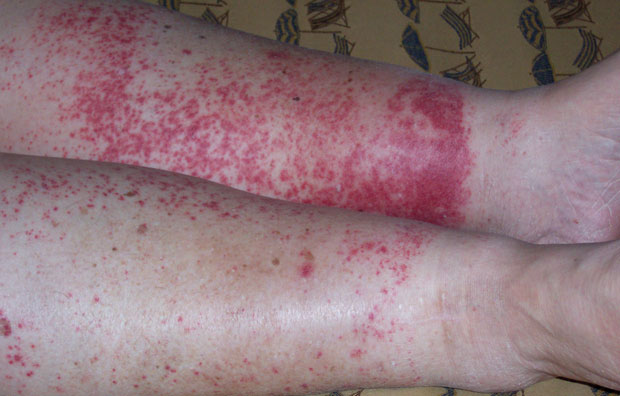New drugs approved for C. diff, HIV
This column reviews recent recalls, alerts, and approvals.
Recalls and alerts
A class I recall of AutoCAT 2 and AC3 Intra-Aortic Balloon Pumps (IABPs) by Arrow International LLC, a subsidiary of Teleflex Inc., after reports that battery power is not lasting as long as expected. While a fully charged battery should last 90 minutes, users have reported that the devices are experiencing shorter run times. There have been 241 complaints, with 135 reported pump stops. No related deaths have been reported. The recall includes 2,132 devices distributed from July 1 to Sept. 30, 2022.
An alert that there is a shortage of Getinge Maquet/Datascope IABP devices. There are limited supplies of IAB catheters, new Cardiosave IABPs, and Cardiosave IABP parts, according to the FDA, which has added IABP devices to its medical device shortage list.
A class I recall of Thermo Scientific Gram Negative IVD AST Sensititre Plates by Remel Inc. due to risk of false-susceptible results in certain situations. There is a risk for false-susceptible results for the Proteae tribe (including Proteus spp., Providencia spp., and Morganella morganii) when tested with the following antibiotics: carbapenem (doripenem, ertapenem, meropenem, and imipenem), cefepime, piperacillin/tazobactam, and aztreonam. The company has received one associated complaint, and the FDA has received five related medical device reports. No injuries or deaths have been reported. The recall includes 18,906 products distributed from Jan. 26, 2021, to Oct. 16, 2022.
A recall of one lot of vancomycin hydrochloride injection USP (1.5 g/vial) by Hospira due to the presence of visible glass particulates. Two visible glass particulates were observed in a single vial. Recalled products were distributed nationwide to wholesalers, hospitals, and institutions in the U.S. and Puerto Rico from June 23 through Sept. 19, 2022.
An expanded recall adding 14 lots of sodium bicarbonate injection USP (8.4%) by Exela Pharma Sciences LLC due to vial breakage. The company did not previously recall the additional lots because they did not appear to be affected; the recall now includes 63 lots. The additional lots were distributed from Oct. 26, 2021, through April 25, 2022.
A recall of four lots of quinapril tablets by Lupin Pharmaceuticals Inc. due to the potential presence of a nitrosamine impurity. N-nitroso-quinapril levels were observed in recent testing. Recalled products were distributed nationwide to wholesalers, drug chains, mail-order pharmacies, and supermarkets from March 15, 2021, to Sept. 1, 2022. The company discontinued the marketing of quinapril tablets in September 2022.
A recall of one lot of daptomycin for injection by Accord Healthcare Inc. due to a product mix-up. A complaint reported that vials labeled as containing 500 mg of the drug were found in cartons labeled as containing 350 mg/vial. Recalled products were distributed nationwide to wholesalers.
A recall of one lot of Easy Care AfterBurn Cream (0.9 g in single-use packets) and first aid kits containing the cream by GFA Production due to product contamination with Bacillus licheniformis and B. sonorensis. Recalled products were distributed nationwide to retailers from March 4 through Dec. 12, 2022.
Miscellaneous
A safety communication about two recent issues in certain reworked Philips Respironics Trilogy 100 and Trilogy 200 ventilators. The ventilators were recalled in June 2021 for issues with the breakdown of polyester-based polyurethane (PE-PUR) sound abatement foam. The first issue with the reworked ventilators is that the silicone foam material used to replace the PE-PUR foam may move due to adhesive failure, potentially blocking the airpath, reducing airflow in the ventilator, and causing the device to alarm. Second, some reworked ventilators that were returned to customers contained residual PE-PUR foam.
Removal of medical gloves from the device shortage list. The FDA will continue to monitor the supply chain and update the device shortage and device discontinuance lists as new information becomes available.
COVID-19 updates
A class I recall of DNA/RNA Preservation Kits by Dewei Medical Equipment Co. because they were distributed to U.S. customers without authorization, clearance, or approval from the FDA. The recall includes 250,000 products distributed from May 2020 to January 2022.
Approval of a new indication for tocilizumab (Actemra) injection to treat certain hospitalized adults with COVID-19. The drug is indicated in those who are receiving systemic corticosteroids and require supplemental oxygen, noninvasive or invasive mechanical ventilation, or extracorporeal membrane oxygenation (ECMO). The FDA first issued an emergency use authorization (EUA) for the drug in hospitalized adult and pediatric patients ages 2 years and older for the same use in June 2021. The drug remains authorized for emergency use to treat COVID-19 in hospitalized pediatric patients ages 2 to less than 18 years who are receiving systemic corticosteroids and require supplemental oxygen, noninvasive or invasive mechanical ventilation, or ECMO.
An EUA for the Diazyme SARS-CoV-2 Neutralizing Antibody CLIA Kit. The test kit is intended for use as an aid in identifying individuals with an adaptive immune response to SARS-CoV-2, indicating a recent or prior infection; it should not be used to diagnose or exclude an acute SARS-CoV-2 infection.
A recall of three lots of over-the-counter COVID-19 tests by Detect Inc. due to an increased chance of providing false-negative results. The recall includes 11,102 tests shipped to customers from July 26 through Aug. 26, 2022.
Approvals
Rebyota, the first approved fecal microbiota product, for the prevention of recurrent Clostridioides difficile infection (CDI) in adults who have already completed antibiotic treatment for a recurrence. It is prepared from donated, tested stool and administered rectally as a single dose. The FDA based its approval on two trials in patients with previous recurrences of CDI that found a higher success rate in preventing additional recurrence through eight weeks with the drug than with placebo (70.6% vs. 57.5%). The most common side effects were abdominal pain, diarrhea, abdominal bloating, gas, and nausea. The FDA also noted that although the stool is screened, the drug may carry a risk of transmitting infectious agents or containing food allergens.
Lenacapavir (Sunlenca), a new type of antiretroviral medication for certain adult patients living with HIV-1 infection. The drug, a capsid inhibitor, is indicated in adults whose HIV infections cannot be successfully treated with other available treatments due to resistance, intolerance, or safety considerations. It is given in combination with other antiretroviral(s) and works by blocking the HIV-1 protein shell (the capsid), interfering with multiple essential steps of the viral lifecycle. The starting dose is given as oral tablets and subcutaneous injections, followed by maintenance injections once every six months. In one trial, 87.5% of patients who received the drug achieved a certain level of reduction in virus during the initial 14 days from baseline versus 16.7% of those who received placebo. After 26 weeks, 81% of participants in the first group achieved HIV RNA suppression; after 52 weeks, 83% of them continued to have HIV RNA suppression. The most common adverse reactions were injection-site reactions and nausea. Warnings and precautions include the risk of developing immune reconstitution syndrome and persistent injection-site reactions described as nodules or indurations.
Ublituximab-xiiy (Briumvi) injection for treating adult patients with relapsing forms of multiple sclerosis. Two trials randomized patients to receive either the drug or teriflunomide, the active comparator, and assessed the annualized relapse rate over a 96-week treatment period. In both studies, the drug significantly lowered the annualized relapse rate compared with teriflunomide. The most common adverse reactions were infusion reactions, including fever, chills, headache, influenza-like illness, elevated heart rate, nausea, throat irritation, erythema and an anaphylactic reaction, and infections, including serious and fatal bacterial, fungal, and new or reactivated viral infections and reduction in immunoglobulins.
Nadofaragene firadenovec-vncg (Adstiladrin) to treat certain patients with high-risk bladder cancer. The nonreplicating adenoviral vector-based gene therapy is indicated in adult patients with high-risk Bacillus Calmette-Guérin-unresponsive non-muscle-invasive bladder cancer with carcinoma in situ, with or without papillary tumors. The drug is administered once every three months into the bladder through a urinary catheter. In one study, 51% of patients using the therapy achieved a complete response (the disappearance of all signs of cancer as seen on cystoscopy, biopsied tissue, and urine). The median duration of response was 9.7 months, and 46% of responding patients remained in complete response for at least one year. The most common adverse reactions include bladder discharge, fatigue, bladder spasm, urinary urgency, hematuria, chills, fever, and painful urination. Individuals who are immunosuppressed or immune-deficient should not come into contact with the therapy.
First-time generic approvals
Cupric chloride injection USP (4 mg/10 mL in single-dose vials) for use as a supplement to IV solutions given for total parenteral nutrition. (Brand name: None provided)
Note: The FDA states that drugs are not always commercially available immediately after approval.





